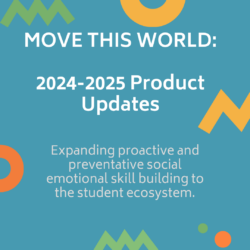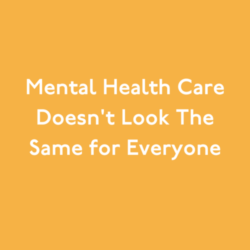Research shows that 60 percent of children enter school with the necessary cognitive skills, but only 40 percent have the necessary social emotional skills.
Social and emotional skills have a direct impact on life outcomes. These skills need to be monitored and nurtured early on so that young people can go on to live healthy and productive lives where they are able to identify and manage emotions, feel and show empathy for others, establish healthy relationships, set positive goals, and make responsible decisions (Collaborative for Academic, Social, and Emotional Learning [CASEL], n.d.).
By understanding what developmental milestones should be achieved in particular age groups, we can be better prepared to help students develop these important skills. This allows us to facilitate effective discussion concerning areas where improvement is needed, and to celebrate the individual successes and achievements of our students.
Because of the amount of time that parents, teachers, and caregivers are able to spend with children, they are in the position to observe children more closely for warning signs of mental and developmental delays and intervene before negative behaviors can be adopted. The developmental guideline below lists many of the behaviors and mindsets that we should be noticing in our children and students.
Developmental Milestones By Age Group
Early Childhood (3-8 years old)
-
Display of a greater sense of empathy and morality
-
Establish and maintain positive relationships
-
Control of impulsive behaviors
-
Identify and manage emotions
-
Adopt resiliency
-
Function independently
-
Understand different viewpoints and opinions
-
Develop a sense of identity
Middle Childhood (9-11 years old)
-
A refined sense of self
-
Strengthening cooperative skills
-
A deeper sense of independence and individuality
-
Development of communication skills
-
Appropriate behavior in social situations
-
Better handling of interpersonal conflicts
-
Responsibility of actions
-
Appropriate cyber behavior
Adolescence (12-18 years old)
-
Established independence
-
Acceptance within a peer group
-
Comfort with making own decisions
-
Increased self-assurance
-
Appropriate handling of issues within dating and relationships
-
Appropriate responses to conflicting and unexpected feelings and emotions
-
Self-acceptance
-
Adjustment to a larger social world
Conclusion
This guide can serve as a helpful tool in monitoring the wellbeing of our students and children. In the upcoming weeks, we’ll share strategies for developing these skills through social emotional learning within different age groups.
Learn more about our Social Emotional Learning programs for students.
Sign up for Move This World’s newsletter to stay up to date on social emotional learning.
Enter your email below!










